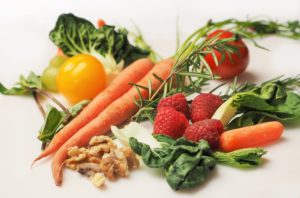Meat-free athletes—from tennis champion Venus Williams to Formula 1’s Lewis Hamilton to Derrick Morgan of the NFL’s Tennessee Titans—have already proven the performance-boosting power of a plant-based diet. Now, “Plant-Based Diets for Cardiovascular Safety and Performance in Endurance Sports,” a new scientific review published in the journal Nutrients adds further evidence that plant-based athletes benefit from improvements in heart health, performance, and recovery.
“It’s no wonder that more and more athletes are racing to a vegan diet,” says review co-author James Loomis, M.D., M.B.A., medical director for the Barnard Medical Center. “Whether you’re training for a couch-to-5K or an Ironman Triathlon, a plant-based diet is a powerful tool for improving athletic performance and recovery.” Dr. Loomis, who is currently training for an Ironman Triathlon, is also featured in The Game Changers, a documentary on vegan athletes scheduled to be released in 2019. He also served as team internist for the St. Louis Rams and the St. Louis Cardinals.
Plant-based diets play a key role in cardiovascular health, which is critical for endurance athletes. But the review finds that even well-trained athletes are at risk for heart disease. A 2017 study found that 44 percent of middle-aged and older endurance cyclists or runners had coronary plaques. A low-fat, vegetarian diet is the most effective dietary pattern clinically shown to reverse plaque. A plant-based diet also addresses other key contributors to atherosclerosis, including dyslipidemia (elevated cholesterol), elevated blood pressure, elevated body weight, and diabetes.
Because a plant-based diet is typically high in carbohydrates, it may also offer performance advantages. Carbohydrates are the primary energy source during aerobic exercise, and endurance is enhanced by a high-carbohydrate intake. But a 2016 study of Ironman triathletes found that fewer than half reported meeting the recommended carbohydrate intake for athletes training 1-3 hours per day.
The researchers also found that a plant-based diet boosts athletic performance and recovery by increasing blood flow and tissue oxygenation and reducing oxidative stress and inflammation. A varied diet of fruits, vegetables, grains, and legumes, along with a vitamin B12 supplement, provides all of the necessary nutrients an endurance athlete needs, including protein, calcium, and iron.

Many vegan food sources, such as vegetables and nuts, are nutrient dense and excellent for fueling athletes. Image via Pixabay.
“Like any endurance athlete, plant-based athletes just need more calories than less active people,” says review co-author Susan Levin, M.S., R.D., C.S.S.D., a board certified specialist in sports dietetics and director of nutrition education for the Physicians Committee for Responsible Medicine. “And if they are eating a wide variety of nutrient-dense fruits, vegetables, grains, and beans, they will easily meet all of their nutritional needs.”
Featured image: an athlete clears a hurdle. Image courtesy of Physician’s Committee for Responsible Medicine.






